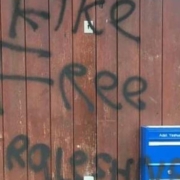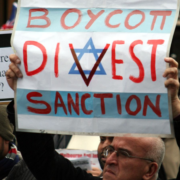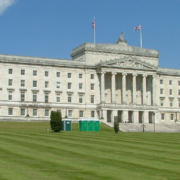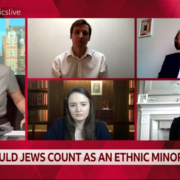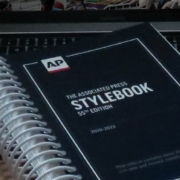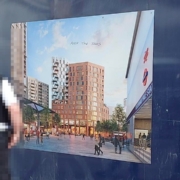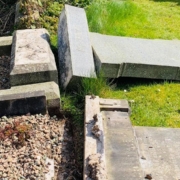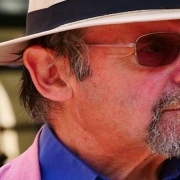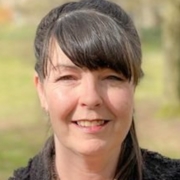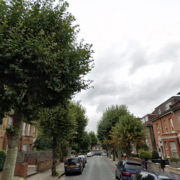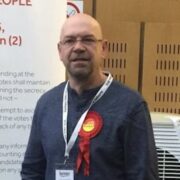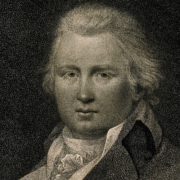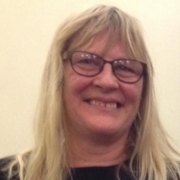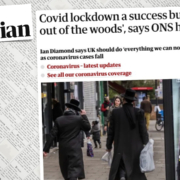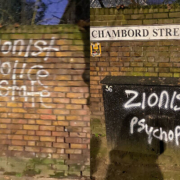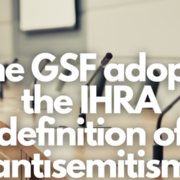There have been mixed results for candidates with controversial histories relating to the Jewish community and antisemitism in last week’s local elections. The candidates hail from all political parties and ran in races across the UK.
ENGLAND
In England, the Conservatives’ Darran Davies, who used an antisemitic “Jew Boy” slur online before apologising with a slap on the wrist from his Party, won his election for a seat on Hillingdon Council.
Labour’s Ruth George, the former MP for High Peak, retained her seat representing Whaley Bridge ward on Derbyshire County Council. Campaign Against Antisemitism has an outstanding complaint with the Labour Party against Ms George, who was challenged during the election campaign by a member of the public over her past antisemitic comments, for which she has apologised. In her response, she said: “You may wish to look into the political affiliations of the Campaign against Antisemitism and the ongoing complaints to the Charity Commission so you have a full picture.”
The suggestion that those calling out antisemitism in the Labour Party had mendacious or political motives for doing so was highlighted by the Equality and Human Rights Commission (EHRC) in its report on antisemitism in Labour as being part of the unlawful victimisation of Jews that took place in the Party. Campaign Against Antisemitism was the complainant in the EHRC’s investigation of the Labour Party.
Elsewhere, Lisa Forbes, the controversial former MP for Peterborough, ran in the Fletton and Woodston ward, where two seats were being contested. Ms Forbes finished third, losing out on a place on the council. Campaign Against Antisemitism has an outstanding complaint with the Labour Party against Ms Forbes.
Campaign Against Antisemitism recently reported on the allegations of antisemitism in Peterborough within both the Constituency Labour Party and the local Conservative Association only days before the election.
The former Liberal Democrat MP and incumbent councillor David Ward campaigned to hold his seat in Bolton and Undercliffe ward in Bradford. He was running as an Independent after being expelled by the Liberal Democrats in 2017 for standing against the Party in an election, having previously been disciplined for comments about Jews, the Holocaust and Israel. There was some concern after the Liberal Democrats declined to run a candidate of their own in the ward, which some interpreted as the Party giving Mr Ward a free run. In the event, Mr Ward lost his election.
Several reports of antisemitism have emerged regarding some of Banbury’s Labour candidates, according to one Twitter user. Cllr Clair Bell, who did not win in Calthorpe North, was said to have shared an article entitled “The Jewish establishment’s ‘War Against Corbyn’ risks bringing real antisemitism to Britain.” The article alleged that the “Jewish community’s leadership or media” only had “one issue on their mind – Israel, and how best to protect it from criticism.”
Also in Banbury, Cllr Wajdan Majeed, who unsuccessfully ran for Calthorpe South, was similarly alleged to have shared a lengthy Facebook post which featured “long-ago debunked propaganda maps.” In a separate post, he was also said to have shared antisemitic tropes alleging that ISIS was “found to protect Israel”, going on to state that “the Iraqi people fought a war against the alternative Zionist army.”
Cllr Cassi Perri, who lost the seat for Banbury Town Centre, tweeted that the International Definition of Antisemitism was “unlawful” and that for political parties to adopt it would “put them in direct conflict with human rights legislation.”
Labour Party Councillor Ross Willmott was unsuccessful in his bid for the position of Leicester and Rutland’s Police and Crime Commissioner. He has previously shared several antisemitic Facebook posts, including the antisemitic meme: “An antisemite used to be a person who disliked Jews. Now it is a person who Jews dislike.”
Ian Middleton, representing the Green Party, was elected in the Oxfordshire ward of Kidlington South.
Andrea Carey-Fuller, also representing the Green Party, stood for the New Cross ward in Lewisham but was not elected.
Brian Rose, the podcaster and entrepreneur, failed in his campaign for Mayor of London with the ‘London Real Party’. He previously interviewed the antisemitic hate preacher, David Icke, in a podcast, during which Mr Rose failed to challenge any of Mr Icke’s antisemitic diatribe regarding 9/11 or COVID-19. The podcast remains on Mr Rose’s website, even thought Ofcom sanctioned the television channel London Live for carrying the interview.
SCOTLAND
In Scotland, three controversial SNP candidates were in the spotlight.
Stephanie Callaghan retained her seat in Uddingston and Bellshill, Lanarkshire. Colm Merrick failed to unstead his opponent in Eastwood in Glasgow, while Suzanne McLaughlin was also unsuccessful in winning Glasgow Southside. Past social media comments by all three candidates emerged during the race, with the first two comparing other mainstream political parties to the Nazis, and the third likening Zionism to fascism.
Derek Jackson, the unsuccessful, anti-vaccination candidate for the Liberal Party (no connection to the Liberal Democrats), arrived at the Emirates Arena in Glasgow during the election count wearing sunglasses, a black suit, and a yellow star whilst performing a Nazi salute. Claiming his antics were merely satire, he was later escorted out by police.
Ryan Houghton, a Tory councillor who was previously suspended over antisemitic Facebook posts which diminished the Holocaust, has now been made the leader of the Aberdeen Conservatives.
WALES
In Wales, representing Plaid Cymru, Leanne Wood, Carrie Harper and Sahar Al-Faifi were all unsuccessful in this year’s election to the Welsh Assembly.
Ms Wood, the former leader of Plaid Cymru with a history of endorsing controversial comments and articles, lost her Rhondda seat to Labour candidate Buffy Williams.
Ms Harper failed to take Wrexham, while Ms Al-Faifi was unsuccessful in her bid to gain the South Wales Central seat.
Joe Glasman, Head of Political Investigations at Campaign Against Antisemitism, said: “Not only are some of these results troubling, but the very fact that some of these controversial candidates were endorsed by their parties to stand for office in the first place is deeply disappointing. We have publicised the records of many of these figures in the past, in many instances submitting formal complaints directly to their parties. Yet here they are again, representing their parties on local election ballots.
“No political party should have allowed these candidates to stand for office, particularly after the EHRC made clear that its recommendations applied not just to Labour but to all parties. These elections have shown how much more there is to do to combat antisemitism in public life.”
Campaign Against Antisemitism advocates for zero tolerance of antisemitism in public life. To that end we monitor all political parties and strive to ensure that any cases of concern are properly addressed.



